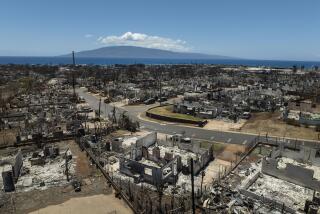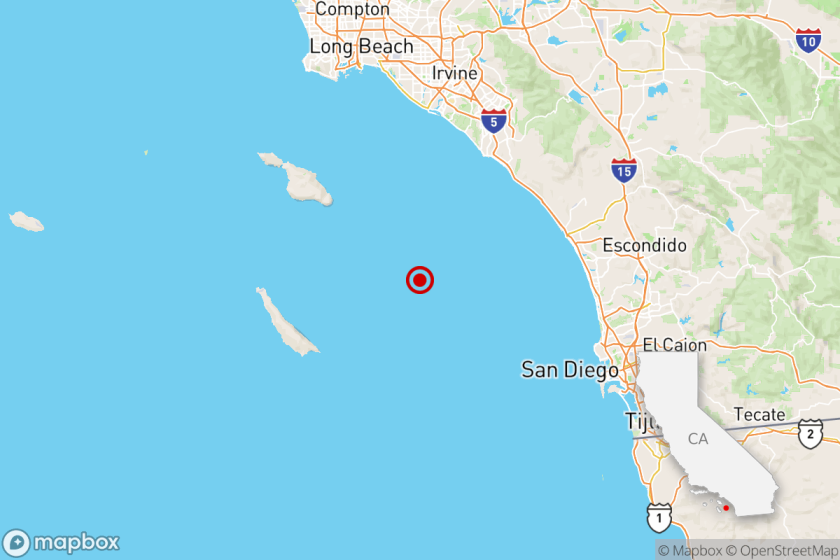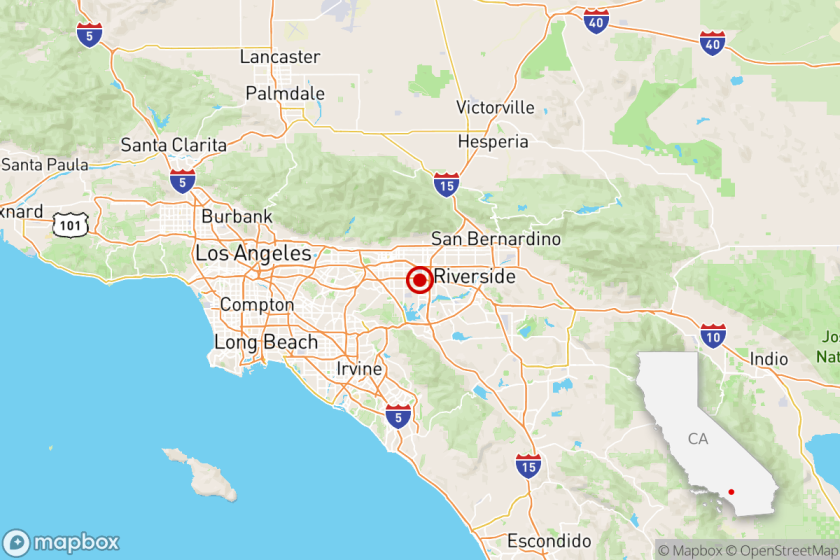Simi Valley Eases Rules to Apply for Quake Repair Loans : Recovery: The City Council’s action won’t help homeowners who make too much money to qualify.
Faced with complaints from owners of quake-damaged homes and delays in receiving millions of dollars in federal aid, the Simi Valley City Council agreed Monday to make it easier for homeowners to apply for grants and loans.
But the changes in the city’s homeowner assistance program do little to help at least two homeowners, who make too much money to qualify for the program.
“The council tries very hard to make things easier for the residents,” Councilwoman Barbara Williamson said in an interview Monday. “You can’t please everybody, but we’re certainly giving it a good shot.”
Established last July with more than $1 million in federal funds, the city’s earthquake recovery home rebuilding program has become bogged down by red tape and funding shortages. What’s more, homeowners complain that the eligibility rules set incomes so low that many residents do not qualify.
Of the hundreds of applicants, fewer than 10% have received loans and 35 have received grants.
About half of the 302 applicants for loans and grants have not even been interviewed by consultants charged with determining their eligibility, city officials said.
After last year’s earthquake, Simi Valley was awarded $1.1 million in federal grants for low- and moderate-income homeowners whose property was damaged. Because of the lengthy application process and other factors, the city so far has awarded only $435,000 of the funds.
Another $2.5 million in federal funds promised last year has been held at state levels for reasons unknown to city officials. They expect to receive that money next month, but it would be reserved only for low-income residents.
“Dealing with the federal government is mind-boggling at best,” Williamson said. “We have asked them for direction, and all we get is confusion.”
*
In making the awards, federal officials stipulated that grants of up to $5,000 be made available to very low- and low-income families, and loans of up to $20,000 be provided to families with moderate incomes. For example, a family of five could earn as much as $75,000 a year and still qualify for the loan. A family of four could make $69,500.
Some homeowners, though, have complained that their incomes are too high for the loan program, but they still cannot afford to rebuild their quake-damaged homes.
Council members decided against changing the income level for the loans.
“Why did I have to pay taxes after the Loma Prieta earthquake?” asked Donald Norris, a payroll analyst whose home suffered about $16,000 in damage in the Northridge quake. “Now when I ask for a loan of $5,000, I can’t qualify.”
Norris said he makes $37,000, which puts him, with no children, about $2,000 over the program’s eligibility threshold.
Garry Chessen, an engineer whose home suffered nearly $68,000 in damage, missed the requirement by just $3,000. “Those modifications don’t help me,” he said outside the council chambers.
Chessen, whose complaints alerted the council to the problems, said his home was “one of the hardest-hit areas in Simi Valley.”
“It’s an emotional hardship when you see all the houses around you being replaced,” he said. “I guess I’ll just try and slowly fix the house up.”
But the council did change some of the rules that blocked access to the federal aid.
Homeowners will no longer need two estimates for the rebuilding work. Instead, applications can be completed with a single contractor’s estimate if it is within 10% of what city engineers say the work should cost.
Also, homeowners who already have a second mortgage on their houses, will now be able to seek the federal loans.
And council members agreed to let selected owners borrow as much as $40,000 on a case-by-case basis.
More to Read
Sign up for Essential California
The most important California stories and recommendations in your inbox every morning.
You may occasionally receive promotional content from the Los Angeles Times.










